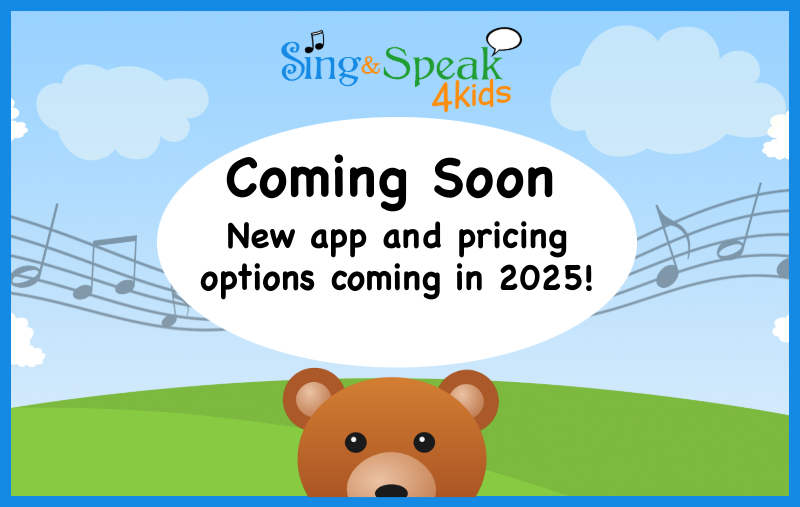March is the official month that we recognize National Music in Our Schools Month, designated by the National Association for Music Education. Music is the cornerstone of the work that we do at Sing and Speak 4 Kids. We believe that it can be used as a bridge to communication, especially for nonverbal children. Music has been proven to be beneficial among all facets of life, a composer quoted in Appreciating Music as a Foundational Aspect of Creativity, reflected that “when we sing or create music, we use all the parts of the brain: left, right, front, and back. All these parts collaborate. That is very unique! Music is complex; that is, it uses so many aspects of a person’s being”.
Research has shown that music can stimulate many areas of the brain, including those responsible for language processing. Rhythm and melody can be a way for nonverbal children to develop communication skills in an accessible and engaging way. Music can help with many other aspects of language including:
- Producing and understanding speech patterns
- Semantic processing
- Grammar and phonological awareness
- Memory and recall
The Department of Defense Education Activity has been teaming up with the National Association for Music Education and Schools to advocate for music in schools and to raise awareness of the benefits that music can bring to the classroom. Music education has been an underfunded and overlooked sector of the American education system, but has been shown to positively impact students in various ways, from academic achievement to social and emotional development. Research has indicated that students who participate in music programs often perform better in all school subjects. Furthermore, engaging in music enhances creativity, discipline, and even teamwork. Skills that will benefit the student, that go way past addition or subtraction.

National Music in Our Schools Month is an opportunity to advocate for music education and programs that use music as a way to improve other skills, much like what we try to do at Sing and Speak 4 Kids. Raising awareness is one of the highest priorities of National Music in Our Schools Month, parents, educators, and community members can take action by:
- Attend board meetings to voice support for music programs.
- Organizing school concerts and events to showcase student talent.
- Spreading awareness through social media using hashtags like #MIOSM and #MusicMatters.
- Go to the National Association for Music Education to get more information!
National Music in Our Schools Month is also about finding creative ways to share music with students and clients. Some ideas for clinicians and educators on how to celebrate MIOSM:
- Start each school day by playing some of your own favorite songs and telling fun facts about the artist.
- Host special concerts or performances by student musicians for parents and community members.
- Invite local musicians to schools to speak about their experiences.
- Integrate music into lessons, because after all, there are songs written about everything!
- Play music during quiet work or downtime.
- Use music-based exercises to enhance listening skills and comprehension.
Music education can extend far beyond the classroom and in our schools. Music can foster lifelong skills and individual passions, while also being a way to connect with others. For many students, music education programs can begin a love for music, whether as a career, a hobby, or even a means of personal expression. The skills learned in music education can have a real-world impact. The discipline required to learn an instrument, the ability to work collaboratively, and the confidence gained in performances can help with personal and professional success. Many careers, even outside music, can benefit from the creativity and critical thinking skills that are learned in music education programs.
Culturally, music connects individuals and communities. For example, The Beatles hit their peak in the 1960s but even today we can still relate and draw meaning from their music. Music plays a role in traditions, celebrations, and social movements, making it a preservation of history and cultural significance. By supporting music education, we can continue the legacy of music having an impact on our youth.
By celebrating National Music in Our Schools Month, we acknowledge the significant influence music has on education and the future of young students. Let’s continue to advocate for music education programs and for the implementation of more music within our school systems so that all children get to experience the positive impact of music.
How will you celebrate National Music in Our Schools Month this year?



